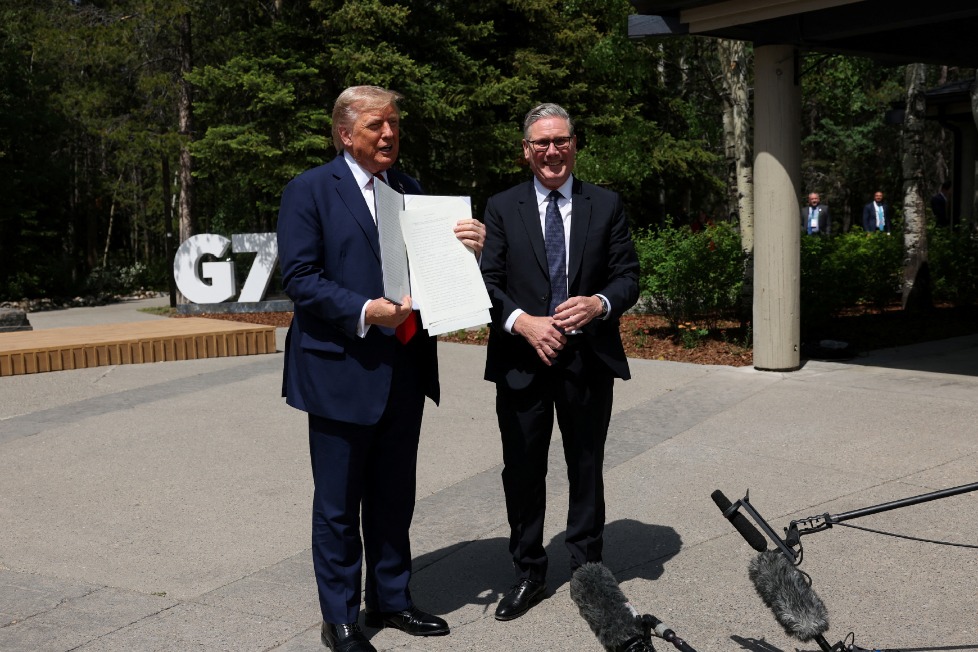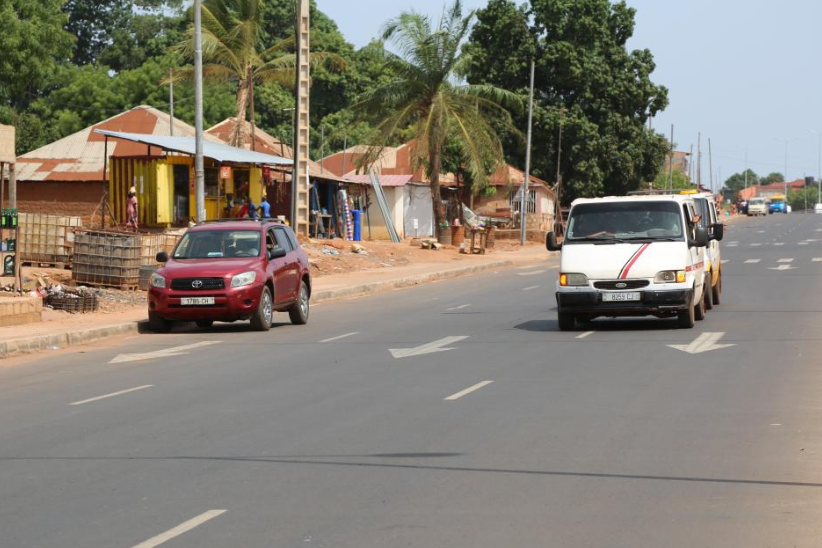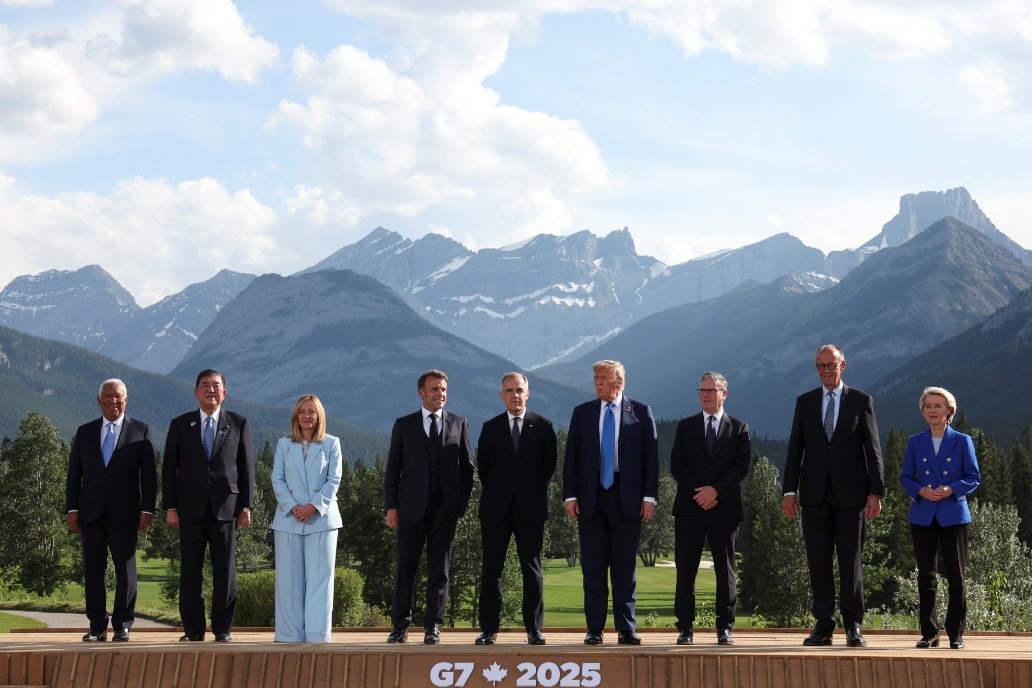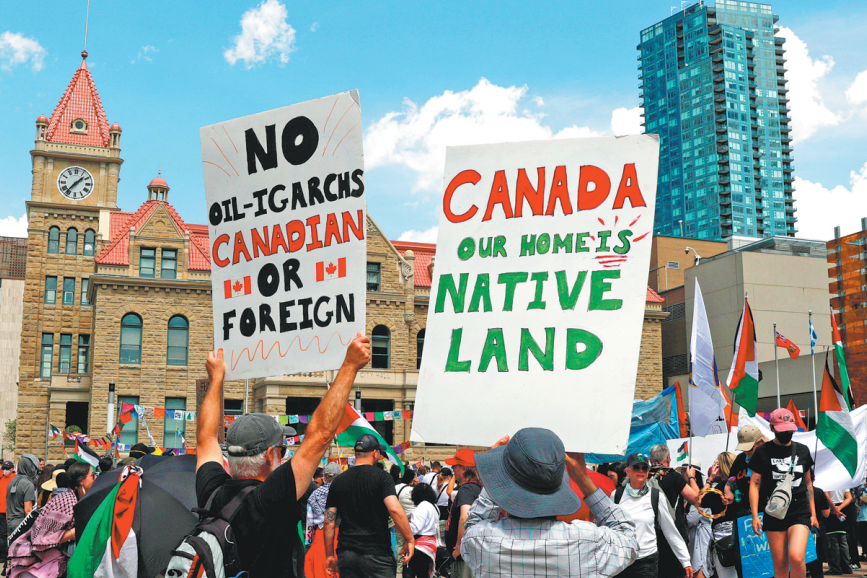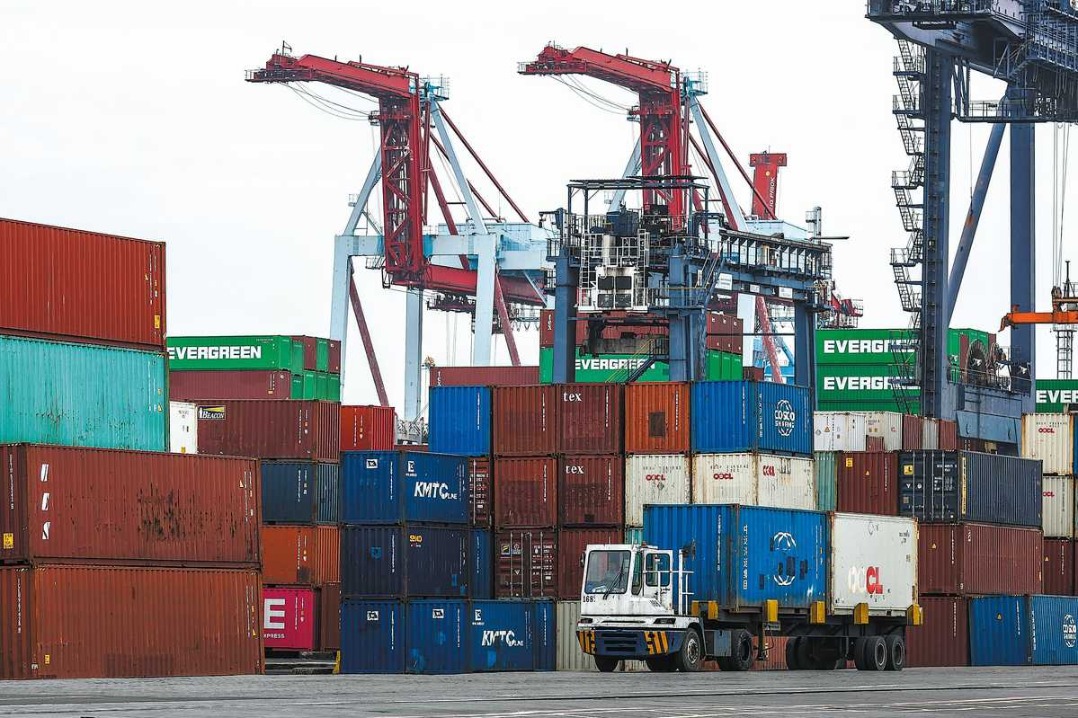US-UK trade deal unveiled at G7 summit

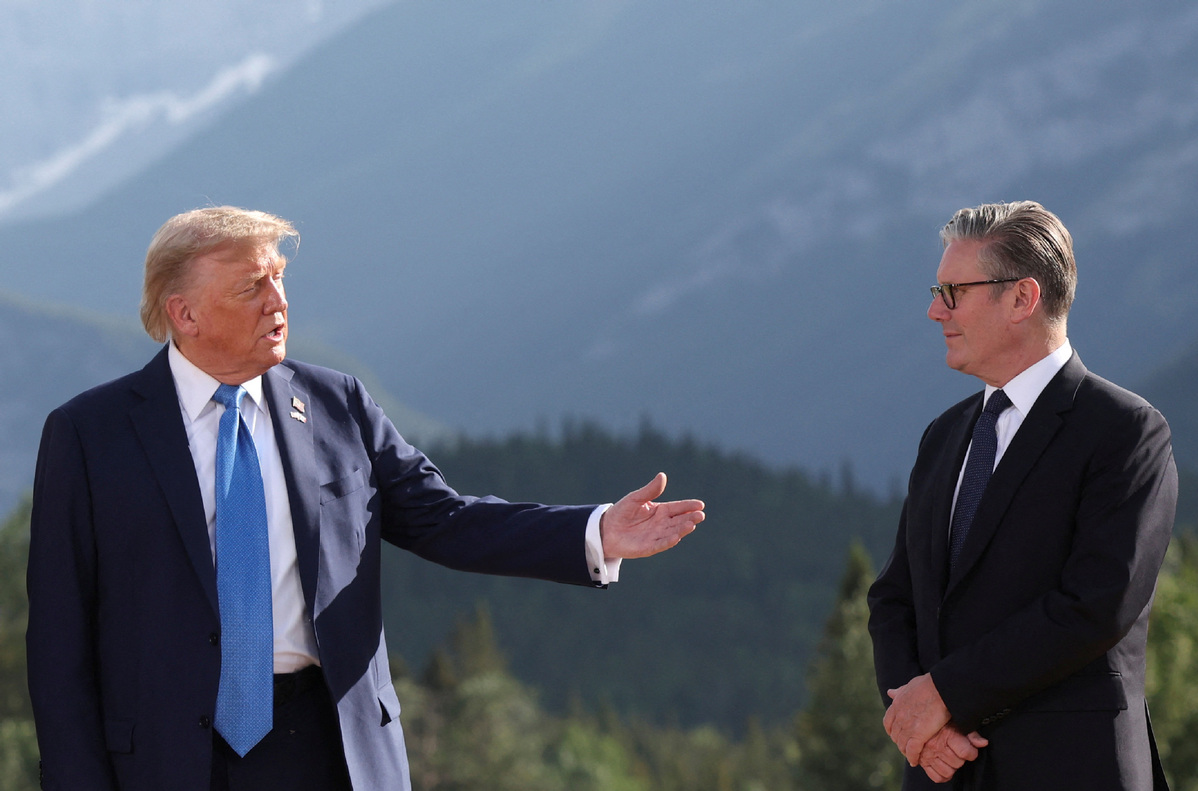
United States President Donald Trump and United Kingdom Prime Minister Keir Starmer used the G7 summit in Canada on Monday as a backdrop for the unveiling of a signed and fleshed-out version of the trade deal they agreed verbally last month.
Heralding the deal – which reduces import taxes, or tariffs, on aircraft parts and UK cars exported to the US – as a "sign of strength" between their countries, Starmer said it "implements on car tariffs and aerospace" and marked a "very important day" for both nations.
Trump said he wanted to ensure the UK was "very well protected" from the full force of his tariffs, because "I like them".
"We signed it, and it's done," he said. "It's a fair deal for both. It'll produce a lot of jobs, a lot of income."
However, the deal still calls for most of the UK's exports to the US to be subject to a 10 percent tariff, which is significantly more than many were subject to before Trump came to power.
The deal will allow the UK to export 100,000 cars at a tariff rate of 10 percent. Without the deal, the rate would have been 27.5 percent. And before Trump came to power, it was 2.5 percent. Because the UK only exports fractionally more than 100,000 vehicles a year to the US, the deal essentially covers all of its auto exports.
The agreement also calls for similar tariff reductions for UK-produced steel and aluminum, but the specifics have not yet been agreed.
"We're gonna let you have that information in little while," Trump told reporters.
The UK government has said it hopes the tariff on UK-made steel and aluminum can be brought down to 0 percent, instead of today's 25 percent.
Mike Hawes, chief executive of the Society of Motor Manufacturers and Traders, the industry group that represents UK carmakers, told the BBC the deal amounts to "huge reassurance" for his sector.
"UK exports to the US were never a threat to US production," he said. "Last year, we only exported 100,000 – these are small-volume, high-value manufactured goods, so not the type that are made in the US."
Also included in the deal is a commitment from the UK to import more US beef and ethanol, with the beef quota set to rise from 1,000 metric tons a year to 13,000 metric tons.
While the UK government has hailed the deal as a major pact and huge win for British businesses, critics have said it falls far short of the free-trade agreement the nation has long wanted, with Kemi Badenoch, leader of the UK's main opposition, the Conservative Party, describing it as a "tiny tariff deal" that achieves little.
earle@mail.chinadailyuk.com
















